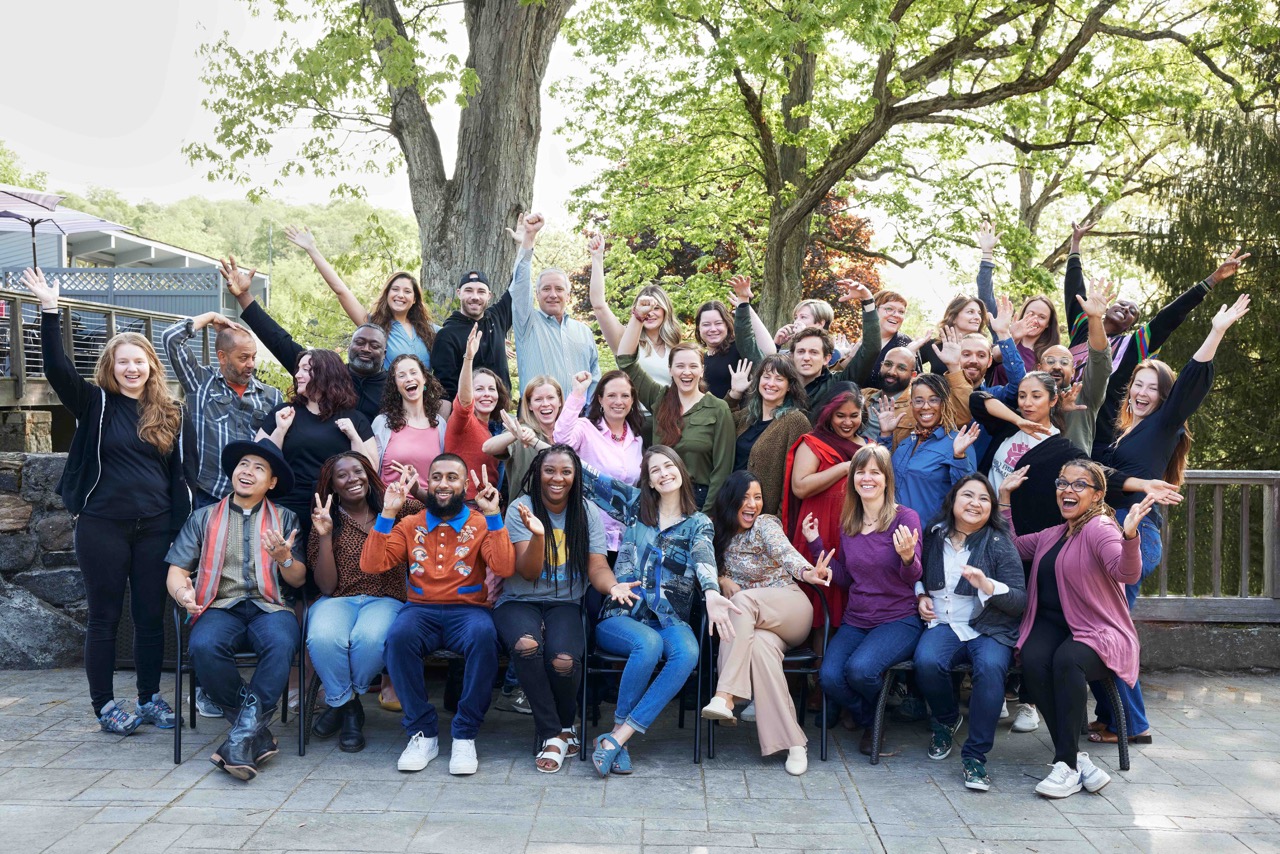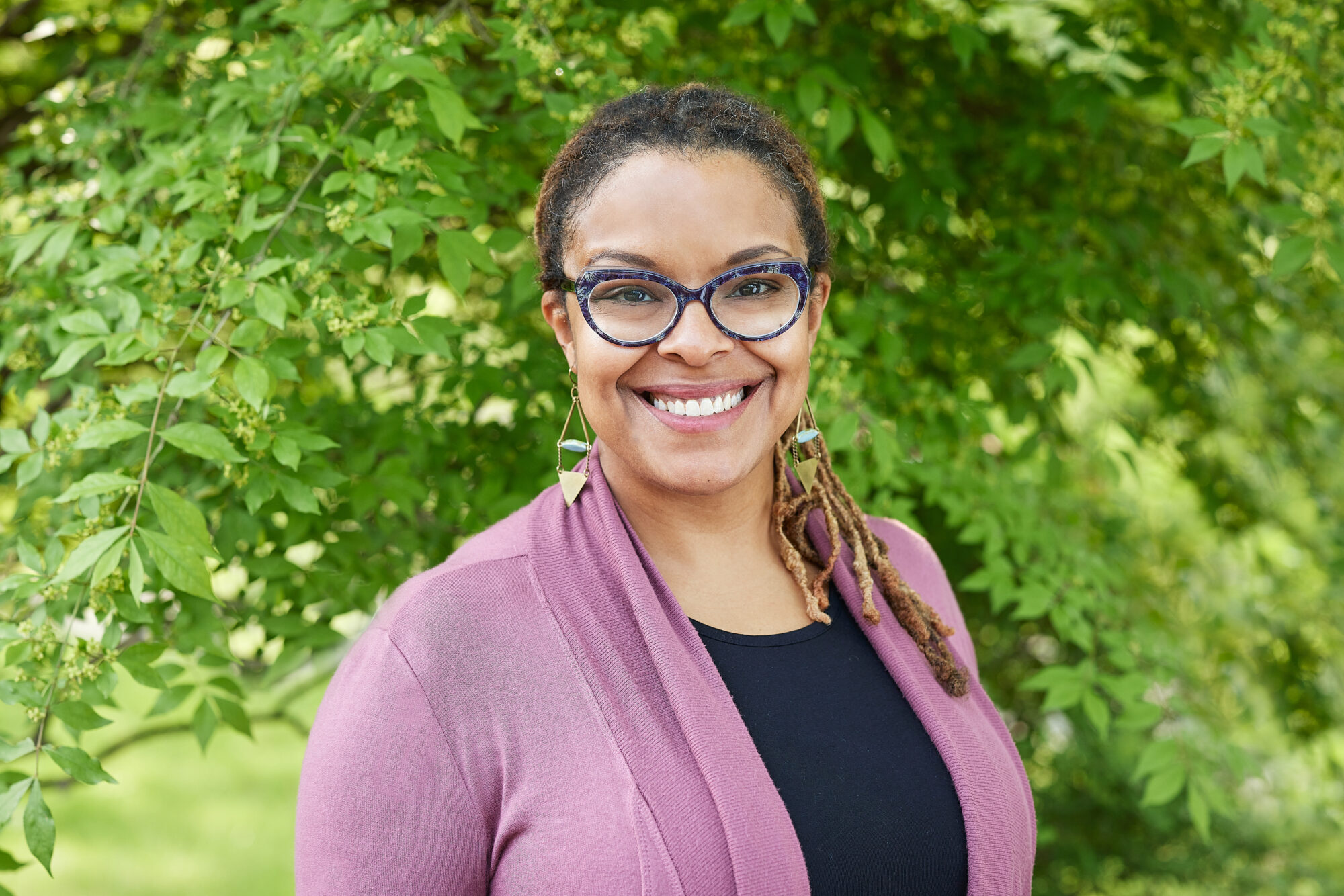In the fall of 2021, the Climate Team invited grantees to participate in an organizational self-assessment to reflect on their racial equity efforts. One of the themes that emerged from the assessment was a desire to learn from peers in the climate field working to advance racial equity. As a first response to that desire, we are excited to share a conversation with Vote Solar – one of our grantees that participated in the self-assessment. Vote Solar is a national organization dedicated to a just and equitable transition to clean power across the US. Vote Solar’s mission is to realize a 100% clean energy future through a solutions-driven, people-first approach.It achieves its mission by working on state policy advocacy and energy regulation. We spoke with Irina Cortez (she/her), Managing Director of Talent + Culture who shared some of the internal organizational equity work the organization is engaged in to strengthen hiring, compensation and advancement practices.
Tell us a little bit about what you do at Vote Solar.
I’m the Managing Director of Talent + Culture at Vote Solar, which is basically all things human resources and talent management. I work with managers to hire and support team members across five pillars: Talent Acquisition and Retention, Internal Diversity, Equity, Inclusion, and Justice, Belonging, Effectiveness (or Talent Management), and Responsibility (otherwise known as Compliance). The role was created in 2020 to support Vote Solar in our work to grow and be more diverse while honoring the ask made by our BIPOC affinity group for more organizational transparency in our HR and Diversity, Equity, Inclusion, and Justice (DEIJ) efforts.
Why is equity work important to the Vote Solar team?
When our team members are supported by the organization, and receive equitable, transparent compensation, benefits, and advancement opportunities, we feel we are better positioned to fulfill our mission, which is a 100% clean energy future for everyone.
To do that, equity must be at the forefront. I’m most excited to share the work we’ve done around hiring and compensation. Perhaps other organizations will realize that they are not alone as we explore better ways of working. I’d love to build a network of organizations working on equitable and transparent compensation and hiring practices.
What was it like to complete the Barr-sponsored racial equity organizational self-assessment and process the results?
We had four people who completed the assessment. This assessment confirmed other surveying we had done before: our human resource and talent management systems needed work and we needed to make hiring and compensation processes more transparent, since they disproportionately impacted women and people of color. This was also the same for promotions and career pathways.
Once you identified your priorities how did you go about implementing change?
We spent a lot of time in our hiring and compensation practices asking where are the gaps?What do we need to do to ensure that everyone has access to the same information? That’s really critical.
We wanted compensation to be fair, transparent, and we wanted to make sure we were giving people a living wage. We referenced the MIT Living Wage Calculator to set a base salary out of the rates for Oakland, CA. We decided that no one at the organization will make less than this amount, on the principle of ensuring everyone at Vote Solar, regardless of position, would earn at least a livable wage.Then we conducted a compensation and benefits survey where we asked: “How are you engaging with these processes? How do you feel about our benefits?” We used that information to inform a series of focus groups, because part of the challenge was figuring out what the right mix of factors is to use when you’re making your compensation structure.
Ultimately, we made several organization-wide updates:
- We landed on a national pay structure for any role that is not dictated by location and a high-cost pay structure for roles that are required to be in a place where cost of living is higher.
- We implemented a uniform cost-of-living adjustment (COLA) increase for everyone in the organization. We give COLA increases in January and include all staff, regardless of how recently they joined Vote Solar. Early on we realized that if we didn’t give COLA raises until staff had been with Vote Solar for a full year or tried to prorate it, we risked salaries getting out of alignment over time.
- Additionally, we no longer allow salary negotiation, as this practice can lead to a significant wage gap between individuals who are skilled at negotiating and those who are not. We make sure to explain to candidates why we’ve implemented this policy, and we’ve received positive feedback. This decision promotes fair and transparent pay, particularly for demographic groups such as women and people of color, who have historically been paid less.
In order to engage in this work, we first had to separate our personal knowledge of the people in their respective roles from the responsibilities and scope of the positions themselves. We began by evaluating the market data on these positions with a benchmarking study. It was important to emphasize that this analysis was not focused on individuals, but on the positions themselves. We aimed to determine a sustainable compensation structure that was also fair, equitable, and just for all.
One hard lesson learned for us through this process is that there is no single right way. Sometimes you have to make a choice, clearly communicate the rationale behind that choice, and then commit to checking to be sure you are okay with the outcome of your choice.
We have made a commitment to re-evaluating our practices and philosophy every three years. But we can still make changes on the fly, as long as we are transparent about why we’re making the changes and apply them equitably across our policies instead of on a case-by-case basis.
Are there any other highlights or successes that you’d like to share?
Our hiring process is another story to highlight.
Initially, our organization’s candidate profiles were rigid and limited the pool of candidates to those with similar backgrounds and experience. However, through our equity work, we’ve become more aware of our own biases and how they can influence our hiring decisions. We now allocate time at the beginning of a hiring process to discuss these biases and ask our team members to call out any biases that they may struggle with. For instance, we might say, “I am aware that I have an ‘affinity’ or ‘like me’ bias, and if you notice me displaying this, please remind me of our conversation.” This approach creates a positive environment that invites others to help us avoid biases, rather than feeling like a negative critique.
We all have biases. Acknowledging that you have them and having other people be on the lookout for you has been really powerful for us to overcome some of those biases in our hiring processes.
We also developed a hiring rubric so that people are clear on what we’re looking for with each role. And we identify ‘nice-to-haves’ (i.e., “This person brings this other dimension to a role – perhaps one we didn’t even know we were looking for.”)
Additionally, we now always list salary in job descriptions nationwide as a general equity practice.
Can you share more about some of the successes you are already seeing with these hiring practice changes?
The hiring process I described evolved over the past three years. Over time and as a result of those changes, we’ve integrated more staff with diverse perspectives and backgrounds. These individuals have continued to shape our thinking. There is a positive feedback loop where diversifying has allowed us to think more and more creatively about our hiring.
One of the areas where we are continuing to evolve is identifying transferable skills. Some of our staff members, whose backgrounds are from outside of the energy or regulatory fields, have helped hiring managers refine their thinking on what core competencies are necessary for roles within Vote Solar. Identifying transferable skills is like looking at a basket of different fruits and, instead of saying “I want an orange,” you dig into what you might get from an orange. In asking those types of questions, you might get a better understanding of the nutrients you’re craving. So instead of “I want an orange,” you could realize that what you really need is vitamin C and you can get that from an apple! Transferable skills operate in the same way. For example, instead of looking for someone who has a background specifically in energy policy, we might broaden our lens to include all policy and then further to include strong researchers as a necessary skill set.
Vote Solar team members can expect to participate in one to two hiring committees per year. This helps us integrate the array of perspectives and networks from within the organization’s staff into each recruiting cycle.
What sort of challenges have you and your colleagues encountered?
There were several challenges: the hiring process and time allocated to hiring continue to be big ones. We are a pretty small team and it’s important for the candidates and the team to engage with each other. I think it’s important for the candidate to know who they’re going to be working with and get a clear sense of what’s expected of them and what they can expect day-to-day. Candidates are choosing us as much as we are choosing them. So being really clear about the time commitment for our internal team members and the timeline that our candidates can expect has been challenging.
With the compensation work, benchmarking is a huge undertaking. One thing that helped was being able to work with an HR consultant who had experience developing compensation philosophies and structures. I would absolutely recommend identifying a qualified consultant to help with this work, especially if you’re a small human resources shop. The consultants we worked with also first helped us define the compensation philosophy prior to showing us any numbers. It was really helpful to have someone who was keenly aware of what we were trying to accomplish. In addition, the fact that the consultant didn’t know any of the individuals in the roles helped us stay focused on the role instead of the person currently holding it.
Lastly, the career pathways piece – both within our organization and beyond Vote Solar – is still stumping us! We’re still trying to figure out what that looks like more fully. We’ve done some work including being much clearer about our leveling guide, which we’ve recently instituted. The leveling guide (also known as job classification) sets expectations and defines skills and responsibilities for each role and includes a pay scale for distinct levels. And in terms of promotions – we’re aiming to be more specific about each role and what it takes to advance. Some pathways are clear and others need a little more specificity to help people see the path and the needs ahead. This is a place where I’m really curious as to what other organizations are up to.
Thank you so much for all of this!
Thank you! I’m really excited for this. Hopefully, this is helpful for other organizations who are doing this work. We’ve definitely not figured it all out – and I’m curious to know how other people are approaching their work.
You can contact Irina with questions or to share your work in these areas at irina@votesolar.org.




